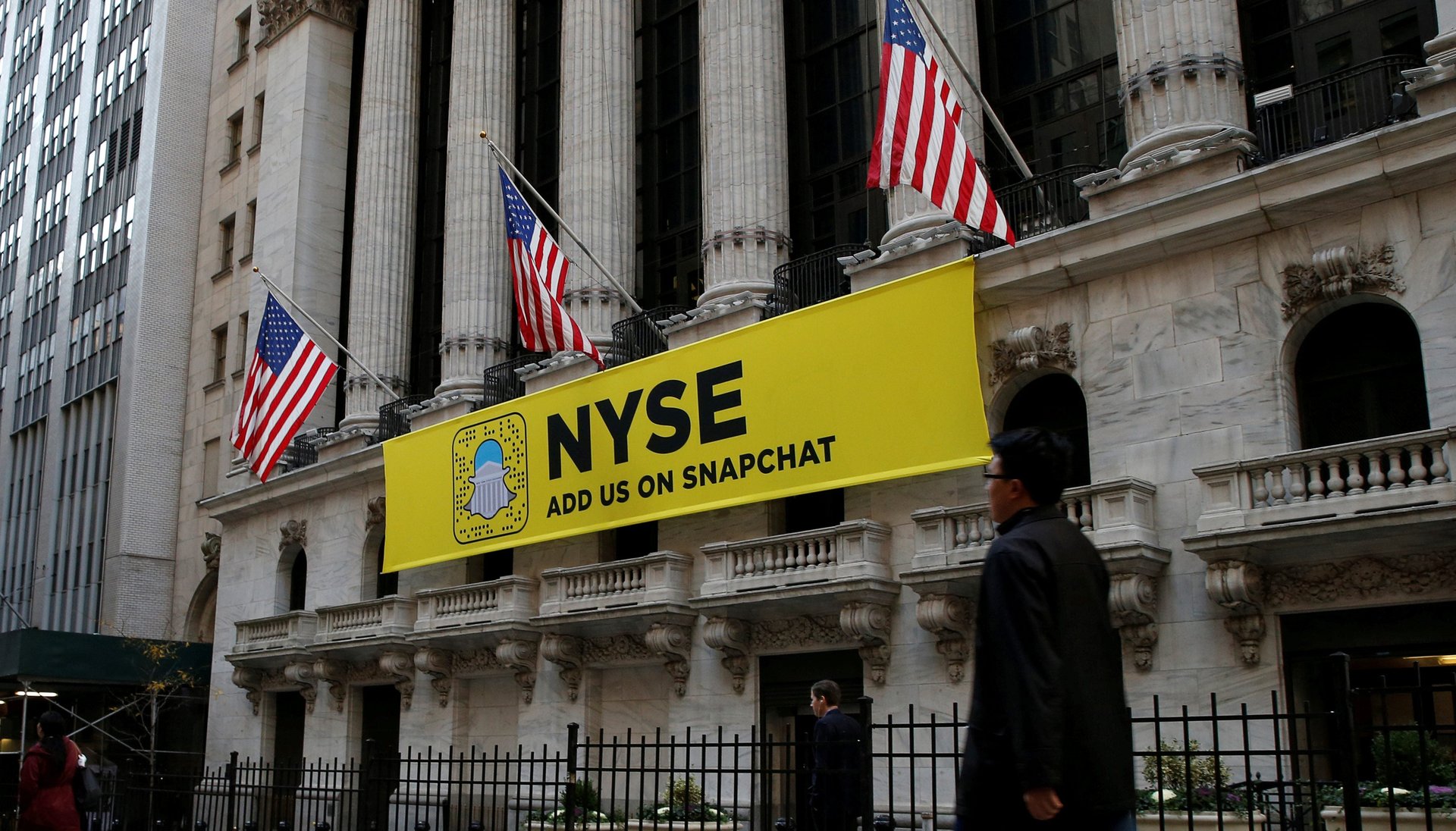Snap is the latest tech company to take investors’ money and tell them to shut up
Snap, the company behind the ephemeral messaging app Snapchat beloved by millennials, is betting its IPO will be so attractive that, by denying investors basic shareholders rights, it’s daring them not to buy shares.


Snap, the company behind the ephemeral messaging app Snapchat beloved by millennials, is betting its IPO will be so attractive that, by denying investors basic shareholders rights, it’s daring them not to buy shares.
According to the Wall Street Journal (paywall), Snap is planning on selling new investors shares without any voting powers. While that’s increasingly common among tech companies—Facebook and Google both have added classes of shares that weaken the power of shareholders—it’s a radical step for a company with no track record as a public corporation.
Snap’s co-founders, Evan Spiegel and Bobby Murphy, will own about 45% of the company but control 70% of the votes, which will allow them to dictate its future, choose board members, and shield themselves from the pressure of activist investors. Because new investors will have no voting power, the founders’ control won’t be diluted as new shares are issued.
Snap will likely get away with it, because it holds most of the leverage.
US IPOs of tech companies are traditionally catnip for investors, and they’ve been drying up. There were only 14 last year and 25 the year before, compared to more than 40 each of the last five years, according to Techcrunch, citing Dealogic data. For the most part, they were smaller offerings; data-storage company Nutanix raised the most in its debut—$238 million.
Snap, which is expected to sell shares in itself in March, could raise as much as $4 billion, which would value the company at around $20-25 billion.
Multiple classes of shares are, of course, not a Silicon Valley invention—they are used at huge companies like Berkshire Hathaway and Ford and have been employed by media companies like News Corp. and the New York Times to maintain family control over their properties.
Google and Facebook debuted on the stock market with multiple share classes, and as they grew more successful, they grabbed more power. In the case of Google, founders Sergey Brin and Larry Page created a new class (paywall) in 2014 to stem the dilution of their voting power that came from issuing more shares to reward employees.
At Facebook, founder Mark Zuckerberg wants to control the company even after if he sells his shares to fund his charitable endeavors. So he, too, is engineering a stock-split that further concentrates his voting power. The plan has not been without controversy, and shareholders have sued, revealing some embarrassing details about the dynamics of Facebook’s board.
Zuckerberg has used the issuance of shares to control Facebook since its founding. The story of how he used them to wrest the company away from his co-founders was made into an Oscar-winning film:
Snap’s founders say they’re limiting shareholder power from the outset in the name of transparency, since the founders want to be in control for the long-term, according to the Journal. Since Spiegel is just 26 years old and Murphy is 28, investors better be comfortable with having them around for a decades to come.